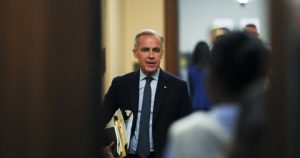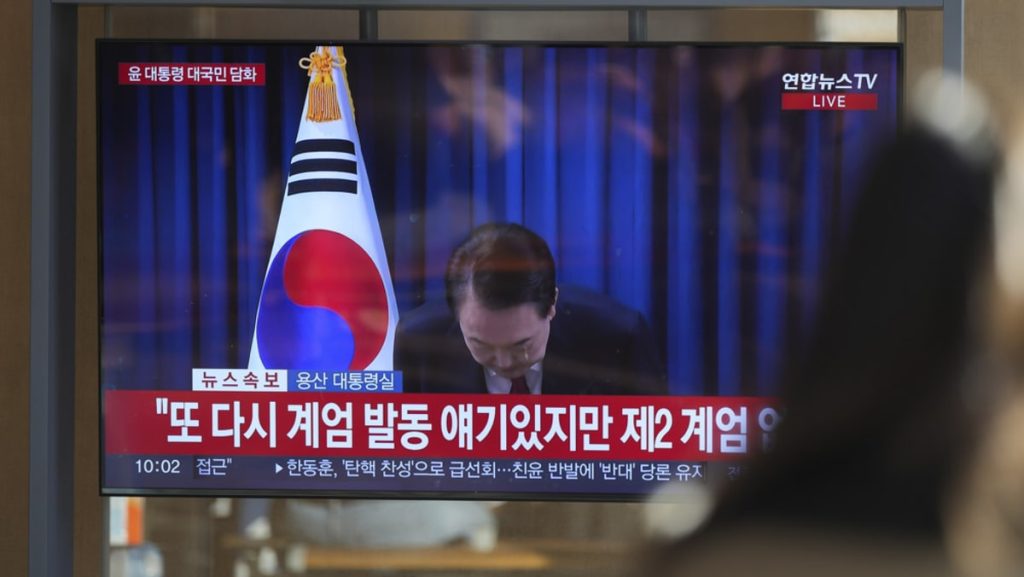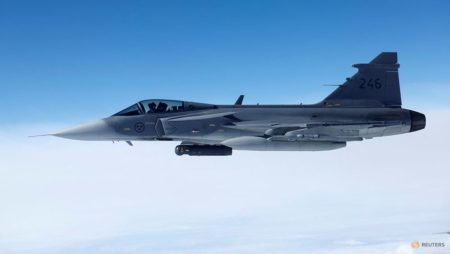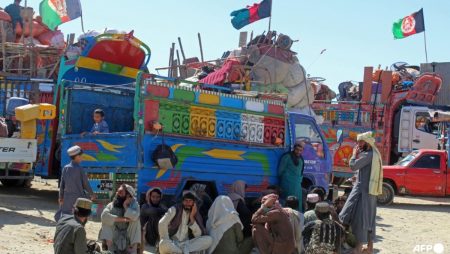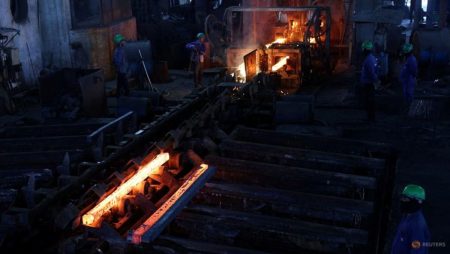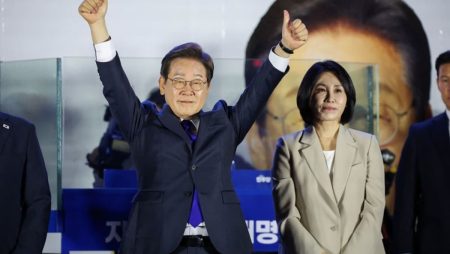The political future of South Korean President Yoon Suk-yeol hangs precariously in the balance as he faces mounting pressure to resign amidst a swirling controversy surrounding his handling of recent protests and his alleged contemplation of martial law. Opposition parties, bolstered by growing dissent within his own People Power Party (PPP), are pushing for his impeachment, setting the stage for a high-stakes parliamentary vote that could dramatically reshape the country’s political landscape. The situation is further complicated by large-scale anti-Yoon protests expected to coincide with the impeachment vote, adding to the pressure on lawmakers and raising concerns about potential social unrest. Yoon’s refusal to resign voluntarily has only fueled the flames of discontent, leaving the nation on edge as it awaits the outcome of the impending political showdown.
At the heart of the crisis lies Yoon’s response to widespread protests sparked by controversial government policies and allegations of corruption. Critics accuse him of mishandling the demonstrations, escalating tensions rather than seeking resolution. The most damning accusation, however, revolves around allegations that Yoon considered invoking martial law to quell the protests, a move that has drawn sharp condemnation from across the political spectrum. This allegation, currently under police investigation, has significantly eroded public trust in Yoon’s leadership and provided the opposition with powerful ammunition in their impeachment bid. The investigation adds another layer of uncertainty to the already volatile situation, with its findings potentially having far-reaching implications for Yoon’s presidency and the stability of the government.
The deep divisions within Yoon’s own party further complicate matters. While some PPP lawmakers remain loyal to the president, others have openly called for his resignation, arguing that his continued leadership would only exacerbate the political turmoil gripping the nation. This internal rift weakens Yoon’s position and makes the outcome of the impeachment vote even more unpredictable. The public statements by prominent PPP figures, such as party head Han Dong-hoon, urging Yoon to step down have dealt a significant blow to the president’s authority and emboldened the opposition. The internal struggle within the PPP reflects the broader national divide over Yoon’s leadership and highlights the fragility of his political support.
The parliamentary arithmetic further adds to the intrigue. The opposition bloc holds a significant majority in the 300-seat parliament, but falls short of the two-thirds majority required to successfully impeach the president. This means that a small number of PPP lawmakers hold the key to Yoon’s fate. The defection of even a handful of ruling party members could tip the balance in favor of impeachment, underscoring the high stakes of the upcoming vote. The intense pressure on individual lawmakers from both sides of the political divide creates a tense and unpredictable environment, with the possibility of last-minute political maneuvering and shifting alliances.
The potential consequences of a successful impeachment vote are significant. Yoon would be immediately suspended from office pending a ruling by the Constitutional Court, which would have the final say on his removal. This period of uncertainty would likely further destabilize the government and could lead to protracted legal battles and political wrangling. Even if the Constitutional Court ultimately overturns the impeachment, the damage to Yoon’s credibility and authority would likely be irreparable. The prospect of a prolonged period of political instability hangs over South Korea as the nation awaits the outcome of the impeachment vote and the subsequent legal proceedings.
The backdrop of large-scale anti-Yoon protests adds another dimension to the crisis. With tens of thousands of demonstrators expected to take to the streets, the potential for social unrest looms large. The protests serve as a stark reminder of the deep divisions within South Korean society and the widespread dissatisfaction with Yoon’s leadership. The convergence of the impeachment vote and the protests creates a highly charged atmosphere, raising concerns about potential clashes between demonstrators and security forces. The government faces the delicate task of maintaining order while respecting the right to peaceful protest, a challenge that will test its ability to manage the escalating crisis.
